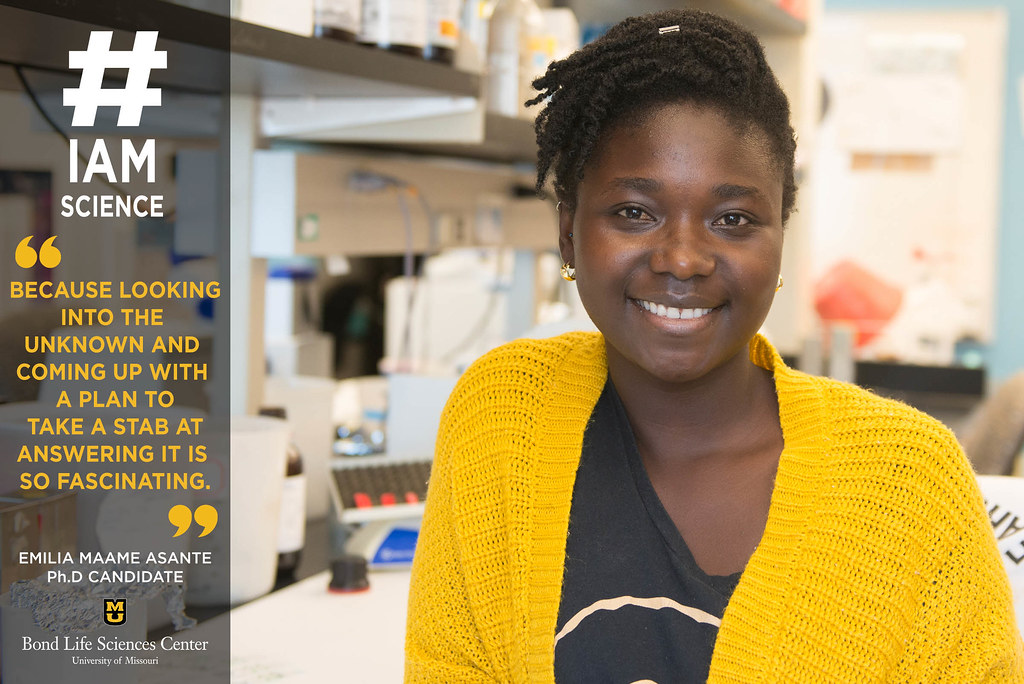“#IAmScience because looking into the unknown and coming up with a plan to take a stab at answering it is so fascinating.”
No one in Emilia Asante’s family works in a science field or attended graduate school.
“As an immigrant from Ghana, my family was unaware of the American educational system,” she said. “So many of my academic journeys were unknown and I had to navigate it by myself. I was always interested in science and with the help of programs such as the Lang Youth Medical program when I was in grades six through 12 and the McNair Program at Earlham College, I was put on the right path. These programs provided the help I need and allowed me to explore science in a way I never knew existed.”
Asante graduated in 2014 from Earlham College in Richmond, Indiana with a degree in biology. She is currently pursuing a Ph. D in biological sciences at MU, and works in Anand Chandrasekhar’s lab at Bond LSC.
“I love being able to walk down the hall and talk to other labs about my project and the getting feedback in real time,” she said. “I love the community that I have built since being here.”
For her dissertation topic, Asante is using the zebrafish model to understand the consequences of abnormal neuronal migration of the facial branchiomotor (FBM) neurons on circuit formation and behavioral function. Her research aims to explore the relationship between behavior and circuit organization due to neuronal migration abnormalities of the FBM neurons.
“Essentially, I’m trying to figure out what happens when the proper connections are not made,” she said. “For example, autism is a neurological disease. How does the defect in the brain connections lead to the complex behaviors such communication and social impairments? I want to understand how the brain rewire itself when there is a misconnection.”
Asante has always been interested in behavioral science and how things work. After graduation, she hopes to take the training from her research and lab experience at Bond LSC to a translational research position. Translational research means she would help people in a more direct way, compared to research that is more removed or abstract. Labs that deal with translational research might discover how certain genes cause diseases or work with translating ALS models to drug therapy.
“The possibility that I might discover something that will add to the knowledge in my field – no matter how small the contribution – that’s very exciting,” Asante said.


